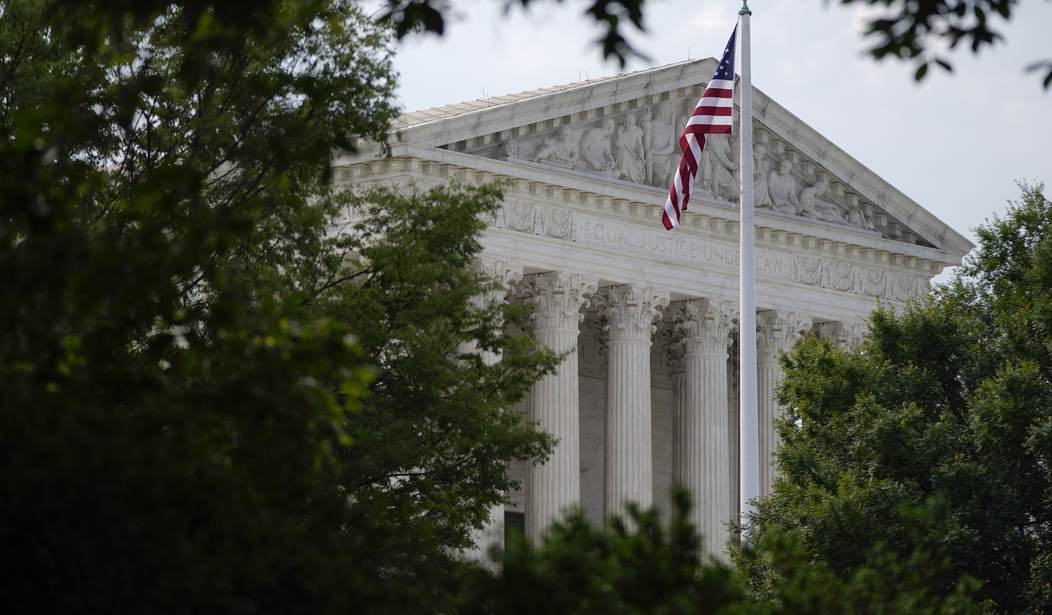And it doesn’t look like they’re too happy about it. Roll Call and The Hill are both out with stories today on the legal landscape for gun control in the wake of the Supreme Court’s decision in NYSRPA v. Bruen, and both take the same general tone: courts are “wiping out” gun laws at a “dizzying pace” ever since SCOTUS declared that New York’s “may issue” laws don’t comport with our right to keep and bear arms and laid out the test that lower courts should be using to determine a particular gun law’s constitutionality, and that’s a bad thing.
Here’s a portion of Roll Call’s Michael Macagnone’s rather slanted reporting:
More than a dozen other challenges to gun control laws are pending in federal courts, which legal experts say could leave holes in efforts to curb gun violence and the use of weapons in crimes.
And with long-standing partisan divisions in Congress over gun control bills, the Supreme Court likely will have final say over the fate of national gun regulations.
Judges now are grappling with how to apply the Supreme Court’s decision from June, which has “led to some pretty bizarre results,” according to Andrew Willinger, executive director of the Center for Firearms Law at Duke University.
Compare that to The Hill’s reporting by John Kruzel:
“In the immediate aftermath, we’ve got a half a dozen courts who are striking down laws based on this decision,” said Jake Charles, a professor at the Pepperdine University Caruso School of Law. “I think it’s going to be shocking to people when we see the fallout from Bruen in the first six months.”
The Supreme Court’s prior term was dominated by the Republican-appointed justices’ overruling of Roe v. Wade. But the court’s aggressive pursuit of other conservative agenda items, like expanding the Second Amendment, is now coming into sharper focus as lower courts wrestle with the gun-rights decision’s implications.
The majority opinion by Justice Clarence Thomas interpreted the Second Amendment as broadly protecting the right to carry a firearm in public for self-defense. At the same time, the decision reaffirmed that gun rights can be lawfully limited — namely, by gun control measures rooted in the “nation’s historical tradition of firearm regulation.”
But the court’s “historical tradition” test has been roundly criticized as vague and offering little help to judges who are not trained historians. The Bruen test also eliminated the formal requirement that judges weigh whether or not a challenged law is effective at preventing gun violence, which could undermine public safety.
“The Supreme Court has adopted a test that’s going to make it hard to justify a lot of gun safety laws, including uncontroversial ones like background checks or bans on domestic abusers having access to firearms,” said Adam Winkler, a professor at the UCLA School of Law and Second Amendment expert.
You’d think that these reporters would have reached out and found comment from at least one attorney or legal scholar who doesn’t view Bruen as a terrible decision. They’re not hard to find, after all. From Paul Clement, who represented the plaintiffs in Bruen, to scholars like David Kopel and Stephen Halbrook, there’s no shortage of subject matter experts who don’t subscribe to the idea that SCOTUS got it wrong when it overturned New York’s “may issue” laws and instructed courts to weigh the text, history, and tradition of the right to keep and bear arms instead of the two-step, tiered-interest test that lower courts had broadly adopted since the Supreme Court’s decision in Heller back in 2008.
Of course, to include those voices would go against the narrative of both pieces, which is probably why they weren’t included. But there are other issues with these reports as well. Kruzel, for instance, says that the Bruen test “eliminated the formal requirement that judges weigh whether or not a challenged law is effective at preventing gun violence”; a statement that’s incorrect on a couple of levels.
First, as Justice Clarence Thomas made clear in Bruen, the courts have been using the wrong test all along, so there was never a formal requirement that judges weigh the supposed effectiveness of a particular gun control law. Beyond that, the effectiveness of these laws wasn’t really the crux of the interest-balancing test that the courts adopted. Instead, courts weighed whether the infringement on a constitutional right was outweighed by the government’s interest in promoting public safety. Even if there was no evidence whatsoever that a particular gun control law was effective, it could still be upheld as constitutional if a judge decided that the interests of the state outweighed the importance of individual citizens to exercise a constitutionally protected right; which is exactly what happened in many lower courts over the past 15 years.
Under the Bruen test, the state’s interest in promoting public safety is irrelevant if it infringes on the fundamental right to keep and bear arms for self-defense, which frankly, is how it should be in a system of government predicated on “promoting the general welfare” without intruding on the enumerated rights of individual citizens. I can get behind Roll Call and The Hill‘s premise that the Bruen decision is bad news for gun control, but their narrative that this is bad for the country is completely off-base and straight from the talking points of the gun control lobby.









Join the conversation as a VIP Member